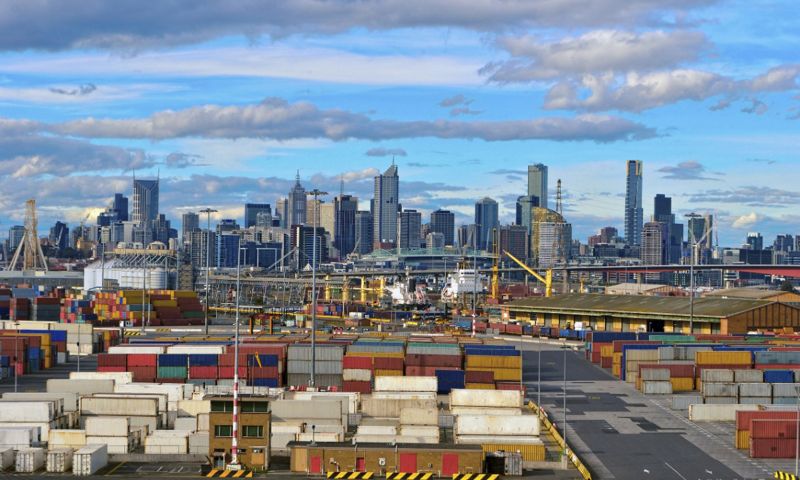Why choose a supply chain and logistics management career? In an era of globalising trade and commerce, knowing how to get freight moving across country and around the world is king.

Associate Professor Booi Kam, Program Leader of RMIT’s Master of Supply Chain and Logistics Management, shares his insights into why Australia is perfectly situated to become a main player in this increasingly critical field.
1. We are a key part of the regional logistics boom
The world’s logistics hotspots have moved from North America and Europe to Asia.
With China known as the “Factory of the World” and right on our doorstep, Australia has a major role to play in getting goods to their destinations as affordably and efficiently as possible.
The world’s seas and airports are filling with freight traffic the same way as our roads are clogging up with cars, making the planning and actioning of the timely movement of freight around the world a critical issue.
2. Unlike some industries, logistics is showing no sign of downturn
You might think the hottest real estate in Australia is in blue-chip suburbs like Toorak in Melbourne or Darling Point in Sydney.
But actually, the most sought-after properties today are warehouses, distribution centres and any site suitable for storing freight. And having places to store goods bought online is equally important.
Positioning storage centres close to transport hubs for warehousing and distributing the growing demand for goods sold online is vital.
Logistics and transport was the biggest category in terms of industrial leases signed in 2015 in Australia, at 39 per cent. This was up from 33 per cent of all industrial leases in 2014.
This indicates a constant growth in the need for industrial floor space, which also bodes well for people planning careers in the area of supply chain and logistics.
3. Logistics expertise is in hot demand
Logistics management is that part of supply chain management that plans, organises, implements, and controls the efficient, effective forward and reverse flow and storage of goods, services and related information.
It deals with the collection and delivery of goods between point-of-origin and point-of-consumption in order to meet customers’ requirements.
Australian logistics experts are becoming pivotal to keeping those channels moving.
4. You can learn from the best in the region
RMIT’s School of Business IT and Logistics won the Best Educational Course Provider Award at the Asian Freight, Logistics and Supply Chain (AFLAS) awards in Hong Kong in 2015 and was one of four finalists for the same award in 2016.
The AFLAS awards recognise leading service providers in the freight, logistics and supply chain industry for demonstrating leadership as well as consistency in service quality.
The award was voted by more than 15,000 Asian Cargo News readers and the win is recognition of RMIT’s commitment to quality, innovation, customer relationship management and reliability.
Our Supply Chain and Logistics students also benefit from regular contributions and interaction with companies like the Port of Melbourne Corporation, Coca-Cola Amatil, Cadbury Schweppes, Nike, Adidas, Toll Holdings, Wallenius Willensen, DP World and GS1.
Students and graduates are eligible for membership of the key professional body, Chartered Institute of Logistics and Transport Australia (CILTA).
Story: Kelly Ryan/Gosia Kaszubska
You may also be interested in:
Find the right course for you
With over 350 qualifications to choose from, it's never been easier to find the right fit.



